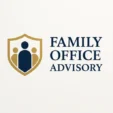What is a Family Office? #
A family office is a private organization created by families of significant wealth to steward and manage their financial, business, and personal affairs across generations. At its core, a family office provides comprehensive wealth management integrated with strategies that support the family’s values, objectives, and legacy.
A typical family office coordinates investment management, tax and estate planning, philanthropic activities, risk management, family governance, and financial education for family members. The structure, ownership, and activities of each family office are shaped by the unique needs and goals of the family it serves.
Family offices range from small operations with just a few staff to large enterprises managing complex, multi-generational wealth and services, always centralizing oversight and strategic decision-making for the family’s assets and legacy.
The defining purpose is to serve as the central hub for the stewardship of wealth, family culture, succession planning, and governance, while acting as a trusted advisor bridging generations.123
Context & Importance #
Family offices have emerged as essential entities for affluent families looking to consolidate various elements of wealth management and support across generations. Their evolution is tied to the need for privacy, control, structured governance, and resilience against global uncertainties.
Beyond investment oversight, family offices play a pivotal role in planning for leadership transitions, maintaining a family’s legacy, and facilitating successful generational wealth transfers. They help enhance continuity and cohesion, aligning the stewardship of assets with the family’s mission and future aspirations.45
Key Types of Family Offices #
- Single Family Office (SFO): Serves one family as a standalone entity, providing customized services exclusively for that family.
- Multi-Family Office (MFO): Serves multiple families, offering shared services that are more cost-effective but less bespoke compared to SFOs.
- Embedded Family Office (EFO): Operates informally within a business or holding structure, owned by an individual or family.
- Virtual Family Office (VFO): Leverages outsourced providers and digital tools to serve family needs with maximum flexibility.
While most family offices are established for a single family, diversity in models enables families to choose the optimal balance of control, service breadth, and cost.67
Purpose & Relevance #
- Wealth Preservation: Family offices safeguard and grow family wealth over successive generations.
- Privacy and Control: Sensitive information and decisions are managed confidentially within a trusted framework.
- Governance: Dedicated governance structures and charters align family members on decision processes and values.
- Legacy Planning: Enables structured transition of assets, leadership, and values to future generations.
- Strategic Management: Facilitates integrated investment, risk, and philanthropic planning tailored to long-term family interests.
The integration of purpose, control, and professional management underpins the value a family office brings, particularly in navigating complex financial, legal, and generational changes.15
Best Practices & Implementation #
- Articulate a clear mandate for the family office aligned with family values and legacy objectives.
- Tailor the office’s legal structure and jurisdiction to optimize privacy, tax, and operational efficiency.
- Establish professional governance frameworks, including family councils and decision charters.
- Regularly revisit office strategy and structures to ensure they evolve with family needs and business cycles.
- Utilize independent advisors and world-class reporting systems for transparent oversight.
- Prioritize education for family members to build financial literacy and succession readiness.
Successful implementation is distinguished by proactive planning, clearly defined roles, and an agile approach to adapt to changing goals, markets, and generational shifts.89
See Also #
- History of Family Offices
- Single Family Office vs Multi-Family Office
- Reasons for Establishing a Family Office
- Key Functions of a Family Office




